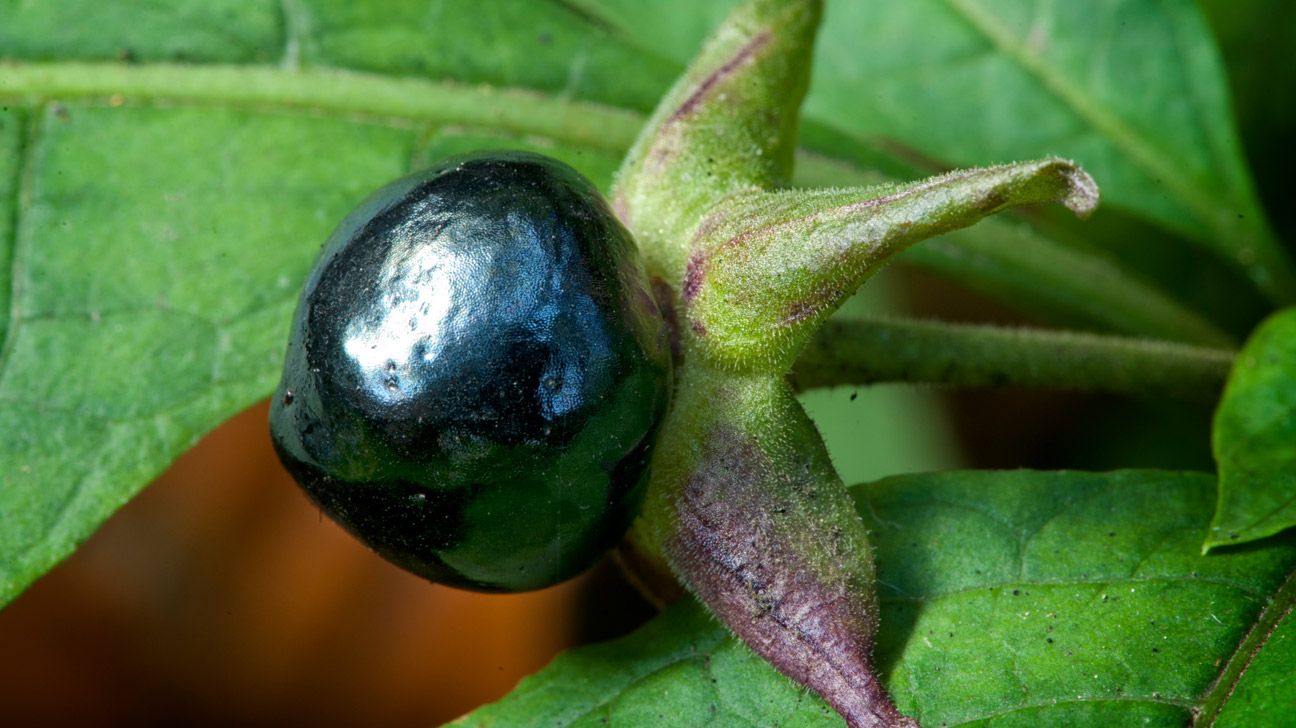Belladonna (Atropa belladonna) is a poisonous plant used as a medicine since ancient times. The name “Belladonna” refers to the “beautiful woman” of Renaissance Italy, who took it to enlarge their pupils, which they found more alluring.

But it also goes by a gray name (deadly nightshade), which implies a darker history. Its dark berries are sometimes known as murderer’s berries, sorcerer’s berries, and even devil’s berries. Also, they are the part of the poison that made Juliet appear dead in Shakespeare’s “Romeo and Juliet.”
This article examines the uses of belladonna and its safety, benefits, and risks.
Despite its negative name, it’s highly unlikely that you have never used belladonna. It’s an ingredient in several medications and is sold as a supplement. When your eye doctor dilates your eyes, belladonna is an ingredient in the eye drops.
Belladonna, native to Europe and parts of Asia, can grow up to 5 feet. It has purple flowers and dark, inky berries that are slightly sweet.
Belladonna is so toxic that eating a small number of its leaves or berries
Despite its toxicity, belladonna has some medicinal benefits. The chemicals atropine and scopolamine stem from belladonna and have important medicinal properties.
Atropine and scopolamine have almost the same uses, but atropine is more effective at relaxing muscle spasms and regulating heart rate. Doctors also use It to dilate the pupils during an eye exam. Atropine can also be an antidote for insecticides and chemical warfare agents.
Scopolamine has many sources, including belladonna, and is more effective at reducing body secretions, such as stomach acid. It can also help with motion sickness via a skin patch.
Combined with Phenobarbital or other medications, these chemical derivatives of belladonna (atropine or scopolamine) treat some conditions, including:
- irritable bowel syndrome (IBS)
- spastic colon
- stomach ulcers
- Parkinson’s disease
- diverticulitis
- motion sickness
- excessive nighttime urination
- pink eye or conjunctivitis
You can buy belladonna products OTC at your local pharmacy or health food store.
Usually marketed as a nutritional supplement, belladonna is sold as tablets, tincture (liquid), ointments, and pump spray. Companies claim it helps with:
- cold and flu
- fever
- cough
- sore throat
- inflammation
- joint and back pain
- earache
- gout
Belladonna should be safe if your doctor prescribes it and you take it as directed. If you are considering using an OTC product, it is important to keep in mind the various concerns about belladonna and herbal products in general.
The Food and Drug Administration (FDA)
You might want to avoid Belladonna unless your doctor prescribes it.
Belladonna is a poisonous plant that has been used as a medication since ancient times. Its uses include enlarging pupils, reducing motion sickness, and reducing stomach acid.
The FDA does not test herbal supplements, so avoid belladonna unless your doctor recommends it.




